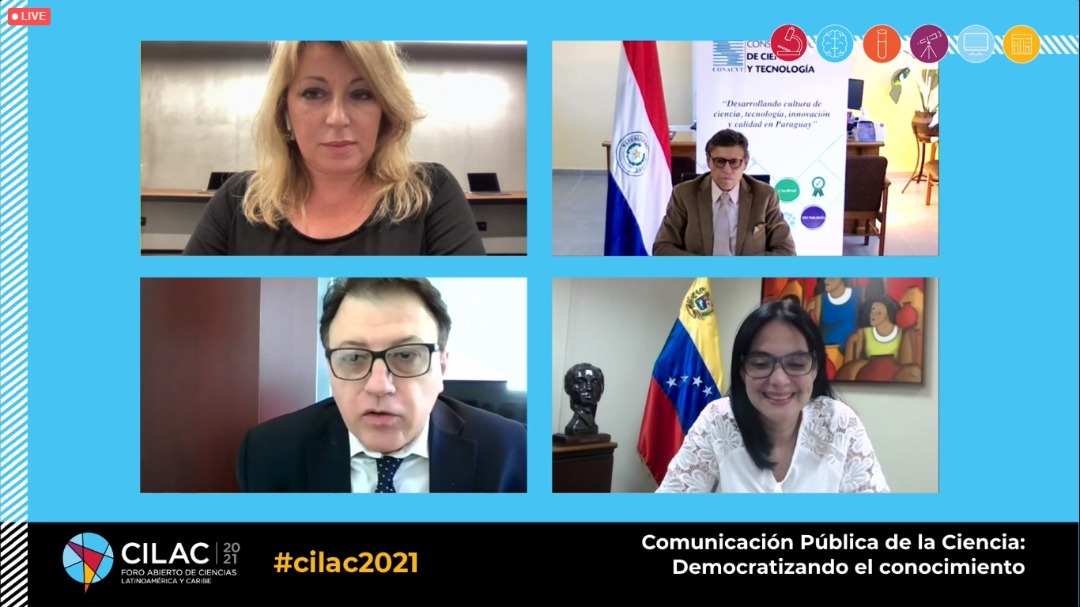In Venezuela, over 60% of scientific researchers are women. This important figure proves the big effort made by the Bolivarian Government to open spaces for the participation of women in all sectors of society.
At the Third Latin America and the Caribbean Open Science Forum (CILAC, Spanish acronym), Venezuela’s Science and Technology Minister Gabriela Jiménez said that Venezuela has developed effective public policies to foster the inclusion of women in all the process of construction and dissemination of knowledge.
“In Venezuela, we have experiences that promote the participation of women in technical, scientific and depatriarchalization processes. We cannot depatriarchalize science if we do not decolonize knowledge, if we don’t have a sovereign, motherly vision of respect for the peoples. The fact that over 60% of the Venezuelan scientific community is comprised by women is an example of this struggle,” said Jiménez.
In her statement, the Venezuelan science minister listed the different programs launched in the South American country to integrate girls, adolescents and women into science to improve productive processes and find solutions to the real needs of the population.
“We have Scientific Hotbeds where we disseminate scientific knowledge from as early as pre-school and elementary age. Children know the processes of scientific research and technological equipment. In this ecosystem, science becomes a fun, entertaining element and contributes to interpreting reality,” said Jiménez.
Likewise, she explained that the National Plan of Technological Innovation (PNIT in Spanish) is a national call for the different actors of society that will be accompanied by the country’s research centers so that every finding, technological development and research project is disseminated and promoted by the media to socialize knowledge.
“We also have the experience of the Farming Scientific Alliance. There, researchers accompany the country’s peasant movement to recover sovereign seeds and biotechnological experiences where young female farmers are trained by the Science Ministry in an exchange of popular knowledge and technology,” added Jiménez.
Public Health and Agro-Food Production
At the CILAC Forum, the Venezuelan Science and Technology Minister Gabriela Jiménez explained that scientific information campaigns have enabled to address different sectors in the country and satisfy needs such as food production, promote public health and prevent SARS-CoV-2.
“We also have organized house-by-house visits to diagnose COVID-19 in communities and family groups, and that can be seen in public, private and social media. We have a whole structure, the Bolivarian System of Communication and private media have enabled us to disseminate scientific knowledge, socialize it and make it understandable for the people with excellent results,” stressed Jiménez.
Minister Jiménez highlighted that the pandemic has affected Venezuela’s health public system and the food production processes, and the PNIT and the Farming Scientific Alliance experiences have accompanied scientists in food producing experiences to ensure innocuousness, the proper use of water and the recovery of Venezuela’s great diversity of seeds.
“Definitely, the knowledge dissemination and socialization tools are effective, especially to give women universal access to science, create knowledge, decolonize production processes and accompany the country’s productive industry and the Bolivarian public health system,” said the Venezuelan Science minister at the Latin America and the Caribbean Open Science Forum.



